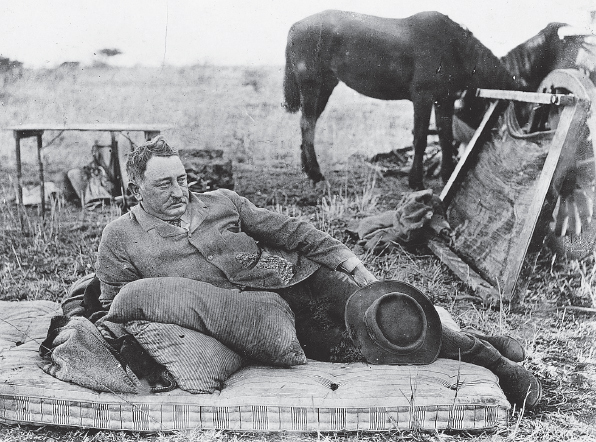Understanding Western Society
Printed Page 756
INDIVIDUALS IN SOCIETY
Cecil Rhodes
Cecil Rhodes epitomized the dynamism and the ruthlessness of the new imperialism. He built a corporate monopoly, claimed vast tracts in Africa, and established the famous Rhodes scholarships to develop colonial (and American) leaders who would love and strengthen the British Empire. But to Africans, he left a bitter legacy.

Rhodes came from a large middle-
Rhodes’s belief in British expansion never wavered. In 1880, he formed the De Beers Mining Company, and by 1888, his firm had monopolized southern Africa’s diamond production and earned fabulous profits. Rhodes also entered the Cape Colony’s legislature and became the colony’s all-
His main objective was to annex the Afrikaner republics and impose British rule on as much land as possible beyond their northern borders. Working through a state-
But Rhodes, like many high achievers obsessed with power and personal aggrandizement, went too far. He backed, and then in 1896 declined to call back, a failed invasion of the Transvaal, which was designed to topple the Dutch-
In accounting for Rhodes’s remarkable but flawed achievements, both sympathetic and critical biographers stress his imposing physical size, enormous energy, and charismatic personality. His ideas were commonplace, but he believed in them passionately, and he could persuade and inspire others to follow his lead. Rhodes the idealist was nonetheless a born negotiator, a crafty deal maker who believed that everyone could be had for a price. According to his most insightful biographer, Rhodes’s homosexuality — discreet, partially repressed, but undeniable — was also “a major component of his magnetism and his success.”† Never comfortable with women, he loved male companionship. He drew together a “band of brothers,” both gay and straight, who shared in his pursuit of power.
Rhodes cared nothing for the rights of Africans and blacks. Both a visionary and an opportunist, he looked forward to an eventual reconciliation of Afrikaners and British in a united white front. Therefore, as prime minister of the Cape Colony, he broke with the colony’s liberal tradition and supported Afrikaner demands to reduce drastically the number of black voters and limit black freedoms. This helped lay the foundation for the Union of South Africa’s brutal policy of racial segregation known as apartheid after 1948.
*Robert I. Rotberg, The Founder: Cecil Rhodes and the Pursuit of Power (New York: Oxford University Press, 1988), p. 150.
† Ibid., p. 408.
QUESTIONS FOR ANALYSIS
- In what ways did Rhodes’s career epitomize the new imperialism in Africa?
- How did Rhodes relate to Afrikaners and to black Africans? How do you account for the differences and the similarities?

ONLINE DOCUMENT PROJECT
What does the life of Cecil Rhodes suggest about the “great man” theory of history that was popular during this period? Examine a variety of perspectives on Rhodes’s legacy. Then complete a writing assignment based on the evidence and details from this chapter.
See Document Project for Chapter 24.